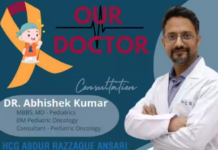New Delhi, Nov 21, 2014 –
To coincide with Global Antibiotic Awareness Day on Tuesday 18 November 2014, NPS MedicineWise is releasing insights from recent research which shows that misconceptions about antibiotics continue to drive inappropriate patient and doctor behaviour, contributing to the growing problem of antibiotic resistance.
Recent evaluation research* conducted by NPS MedicineWise shows that patient expectations lead many general practitioners to prescribe antibiotics when they may not be effective.
The research indicates that more than half of GPs (57%) self reported that they would prescribe antibiotics for an upper respiratory tract infection to meet patient expectations – and 20% of surveyed consumers reported that they would expect the doctor to prescribe antibiotics for a cold or flu. 17% of surveyed consumers replied that they would ask a doctor to prescribe antibiotics.
NPS MedicineWise CEO, Dr Lynn Weekes, said that many doctors are feeling pressured to meet their patients’ expectations.
“Australians must understand that antibiotics will not work for colds and flu or all infections. They are effective for some bacterial infections, but there are misconceptions in the community that antibiotics will work for most illnesses and this is not the case.
“Our research has found that doctors feel pressured by some people, and this pressure combined with other factors such as time constraints, means they may prescribe antibiotics when it is not appropriate. The overuse and misuse of antibiotics is increasing the problem of antibiotic resistance in Australia.”
Another clear theme emerging from the research is that people don’t understand that what they do as individuals can have a very real and immediate impact on antibiotic resistance.
“There is a misconception that this is a problem one has no control over, and therefore action at an individual level makes no difference,” says Dr Weekes.
“We are seeing that some doctors don’t believe their individual prescribing makes a difference, and patients believe this is an issue for future generations and therefore they won’t bear the consequences. The reality is that antibiotic resistance is a personal threat now, it’s a growing problem in our community, and to prevent it we all need to take personal action.”
The more antibiotics are used, the more chances bacteria have to become resistant to them. This can then make bacterial infections much harder to treat.
“Using antibiotics when you don’t need them may mean that they won’t work for you when you do need them in the future,” says Dr Weekes.
Dr Weekes outlined some tips for all Australians to help prevent antibiotic resistance:
- Don’t pressure doctors to prescribe antibiotics for you when they’re not required
- When you do need to take antibiotics, take them exactly as prescribed
- Never save leftover antibiotics for another illness or another person’s use
- Practise good hygiene (such as regular hand washing) to avoid infections and prevent them spreading to others.
This Antibiotic Awareness Week, NPS MedicineWise is calling on all Australians consumers and health professionals to pledge to join the fight antibiotic resistance at www.nps.org.au/join-the-fight or at www.facebook.com/NPSMedicineWise. CCI Newswire






















